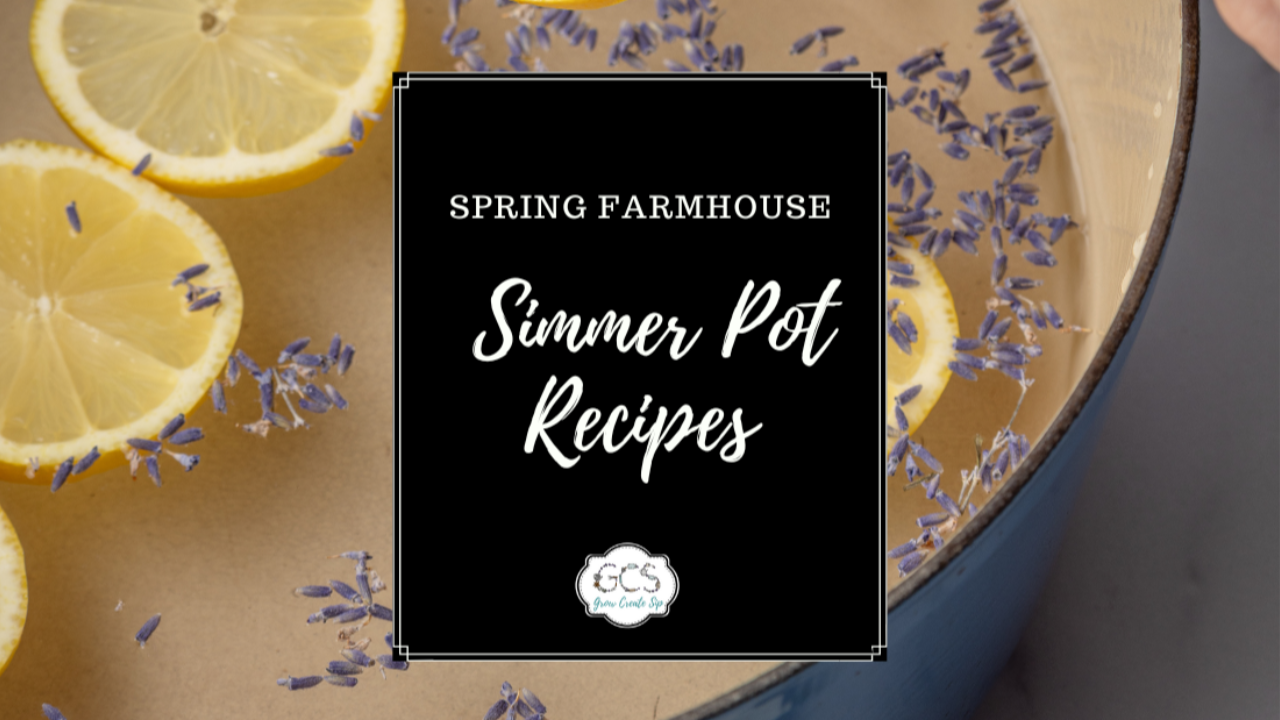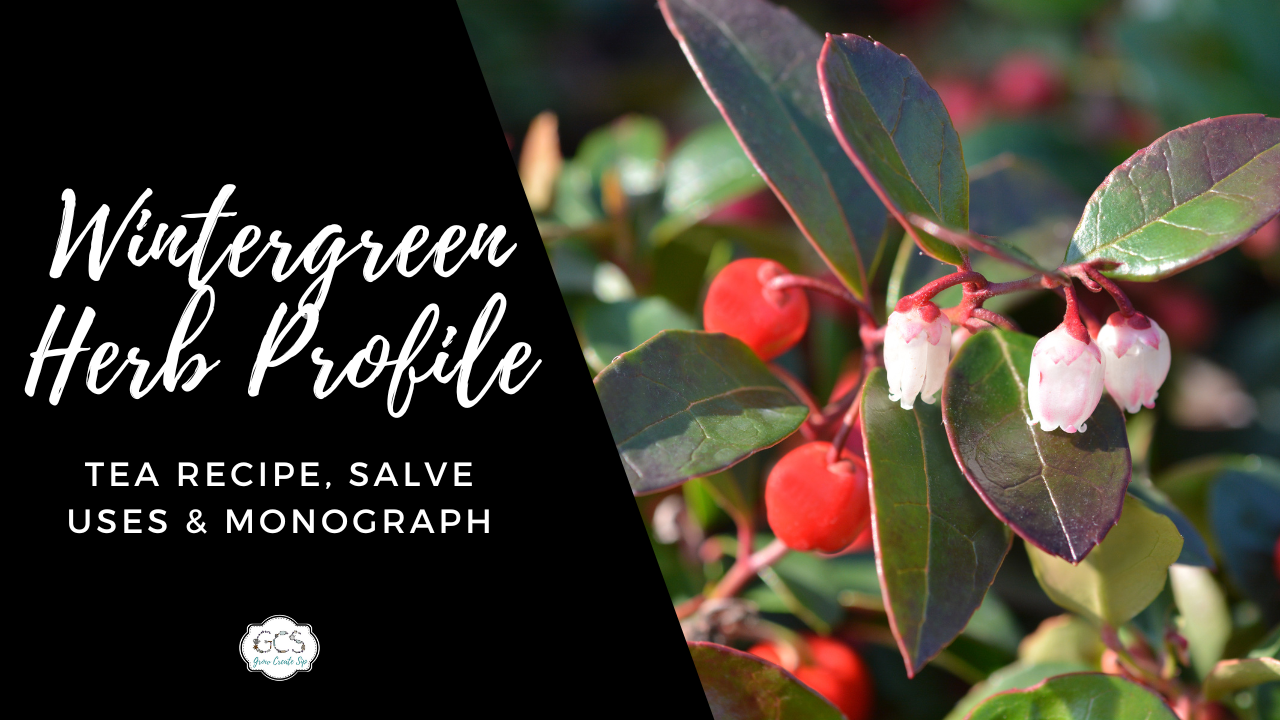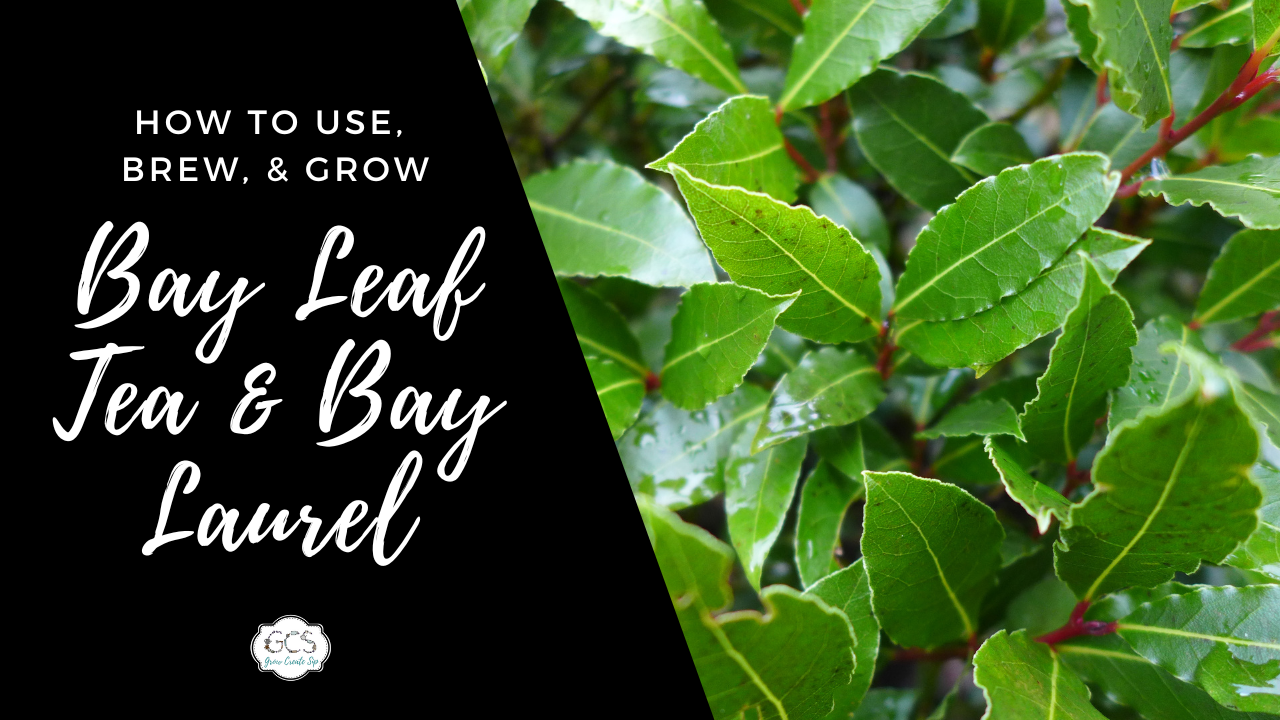Herbal Tea for Sleep & More: Best Herbs to Sleep Well
Sep 16, 2024
I think we can all agree that sleep is important. And I think we can also agree that we all experience at least a few nights here and there where we just can’t seem to get to sleep. And with husbands, littles, and other family members and friends that need us to be on the ball, well, pretty much 24/7… we really need quality zzz’s every night!
Many over-the-counter sleep aids don’t actually help, and if you’re here, I know you don’t want to mess around with too many pharmaceuticals. So, what’s a sleepy mama to do? Herbs are here to help. They have been used for centuries to aid with relaxation and improve sleep quality, and for good reason!
Tinctures and herbal tea for sleep are a natural and effective way to improve your rest. Below, discover the best herbs to sleep well, including chamomile, lavender, passionflower, lemongrass, linden, and more. Learn about the benefits, side effects, and how to use these herbs for sleeping in your bedtime routine. You can enjoy a restful night with the right tinctures and herb tea for sleeping!

The Legal Stuff
This blog is provided by St. Fiacre's Farm LLC for informational purposes only. It does not constitute medical advice, and you should always seek the advice of a qualified healthcare provider for any medical questions or concerns. Please note that we may earn a small commission on any purchases you make through our affiliate links, at no additional cost to you. Thank you for your support!
Why Choose Herbal Medicine Over Pharmaceuticals
There is a time and place for pharmaceuticals, but I much prefer relying on my at-home apothecary whenever possible. I know that when it comes to sleep aids, many turn to prescription medicines. And while they may help some, they often have unwanted side effects.
Drowsiness during the day, dizziness, and even addiction are only a few. Herbal remedies are generally considered safer and have fewer potential risks.
Herbs can address sleep issues in a much more holistic way. They work by treating the underlying causes of insomnia, like stress, anxiety, and restlessness. Plus, unlike pharmaceuticals, tinctures and herbal tea for sleep usually have a gentler effect on the body. You’ll wake up feeling refreshed and alert instead of groggy.

The Best Herbs to Help You Sleep
There are tons and tons of herbs for sleeping! Known to help you relax and improve your sleep, below are some of the most common options:
- Chamomile
- Valerian root
- Lavender
- Passionflower
- Spearmint
- Lemongrass
- Linden
- Blackberry leaves
- Hawthorne leaf
- Hops
- Skullcap
Let’s take a closer look at each of these.
Chamomile
Chamomile, with its daisy-like flower, is native to Europe and Asia. It has been used for centuries to assist many different ailments, including insomnia and anxiety. Chamomile contains flavonoids, compounds that can help reduce anxiety and promote relaxation. It’s also a good source of antioxidants.
Valerian root
Valerian root is a perennial plant that is also native to Europe and Asia. Like chamomile, it’s been used to fight against insomnia and anxiousness for thousands of years. It boasts compounds that may increase levels of GABA — a neurotransmitter in the brain that helps people relax, making it one of the better herbs to sleep well.
Lavender
Lavender is a Mediterranean plant known for its nice-smelling purple flowers. It is another ancient herb that is renowned for its ability to reduce stress. Lavender is often used in aromatherapy to promote relaxation. Drinking lavender tea can have a similar calming effect — it’s a great option if you have trouble falling asleep.

Passionflower
Passionflower also boasts bright purple blooms. It’s a climbing vine native to the Americas and has also historically been used to treat nerves and insomnia. Passionflower is another herb with calming properties. It may help reduce anxiety and improve sleep quality, especially in people with generalized anxiety disorder.
Spearmint
This perennial herb native to Europe and Asia has a refreshing minty flavor — you probably recognize the name from your favorite pack of gum. While not usually associated with sleep, it may help soothe the digestive system and reduce heartburn. If you’ve ever experienced either, you know how much they can interfere with sleep!
Lemongrass
Lemongrass is a perennial herb native to Southeast Asia that could help you relax, reduce your stress, and aid with digestion. It has a bright, citrusy flavor and is often used in cooking. It also may have anti-inflammatory properties. Inflammation contributes to sleep disturbances, so you’ll sometimes see lemongrass in herb tea for sleeping.
Linden
The only tree on our list, Linden is native to Europe and Asia and has fragrant flowers (that have a sedative effect on the nervous system) often used to make herbal tea for sleep. Its soothing properties may help aid with relaxation and improve sleep quality. Like lemongrass, it can also help with inflammation.
Blackberry leaves
Blackberry leaves are rich in antioxidants and may help reduce inflammation, which as you now know, can contribute to insomnia. The compounds in the leaves are known to calm nerves, helping you relax and reduce any anxiety. Digestive issues can often interfere with sleep as well — this plant can also aid with digestion and works very well in a soothing herbal tea for sleep.
Hawthorne leaf
Hawthorne leaf is traditionally used for heart issues, and it may also help improve sleep quality by reducing anxiety. Plus, cardiovascular problems can ultimately interfere with your quality of sleep. Taking an herb that has been shown to help with those issues could help you sleep better overall.
Hops
Beer drinkers are used to seeing the word “hops” — as they are used in brewing — but they also have medicinal properties. Hops may help promote sleep by reducing anxiety and improving sleep quality, and may also aid with restlessness.
Skullcap
Skullcap has traditionally been used to treat both anxiety and insomnia — it contains compounds that have a calming and sedative effect on the nervous system. It may be particularly helpful for anyone with anxiety-related sleep problems. It has been shown to help you fall asleep faster.
Best Teas to Enjoy at Night
There are so many wonderful herbs that can help promote sleep; many of them may be drank as tea or taken as a tincture. Some herbs do better as tinctures, like Valerine, because its flavor is not that appealing, and it is easier to get the herb down as a tincture vs a tea. The other herbs on this list would make great single teas, though, or you could even blend them together into any combination.
If you are looking for the best already-prepared tea to purchase and enjoy at night, these are our top recommendations:
- Plumb Tuckered Out Herbal Tea
- Chamomile Herbal Tea
- Rose Garden Repose Herbal Tea
- Lamplighter Lemonette Herbal Tea
- Southern Raspberry Rose Herbal Tea
To make a sleep tincture grab this simple dump and go mix - Hops in the Sack!

Other Natural Ways to Improve Sleep
While maybe you won't sleep like a dog on a Botany of Beer book, there are several other things you can do to improve your sleep quality beyond herbal tea for sleep, or tinctures made with herbs for sleeping. Remember, you won’t be able to take care of your family if you don’t take care of yourself while you’re at it, so make it a priority!
- Create a relaxing bedtime routine: This could include taking a warm bath, reading a book, or listening to calming music.
- Set up your space: Make sure your bedroom is dark, quiet, and cool.
- Practice relaxation techniques: Prayer, meditation, and deep breathing can all help you feel more relaxed.
- Limit caffeine and alcohol: Both can interfere with your sleep.
- Be active: Exercise can help improve sleep quality. You don’t have to go for a run or do a workout class if that’s not your style — a long walk or some time in the garden is perfectly adequate!
Herbs to Sleep Well Frequently Asked Questions
Are there any side effects to drinking herbal tea for sleep?
While most herbal teas are generally safe, some may experience mild side effects like a stomachache or an allergic reaction. Pregnant and nursing mamas should always talk to a healthcare professional before ingesting herbs in teas, tinctures, or any other herbal remedies. Folks with underlying health conditions should always talk to their doctor too.
What is the best herbal tea for sleep?
Teas with any of the herbs for sleeping mentioned above may help you rest more easily. Look for blends with organic chamomile, spearmint, lemongrass, linden, and/or passionflower. Above all, choose an herbal tea, not one with any caffeine!
Can I combine different herbs in my tea for sleep?
Yes, you can definitely create your own custom sleep blend by combining various herbs to sleep well. That said, it’s essential to research the potential interactions between different herbs before mixing them.
Is it safe to drink herbal tea for sleep every night?
Most herbal teas are generally safe for long-term use. That said, it’s a good idea to consult with a trusted healthcare professional if you have any questions or concerns. Depending on certain conditions, you may need to take breaks or limit your intake.

Time to Wake up on the Right Side of the Bed
If you’ve been struggling to get a good night’s sleep but don’t want to resort to pharmaceuticals, try medicinal herbs instead! Herbal teas and tinctures can be a safe and effective way to improve your sleep quality. When you incorporate herbs like chamomile, valerian root, and lavender into your nighttime routine, you’ll be one step closer to getting more restful sleep, naturally. If you enjoyed learning about the best herbs for sleep and want to blend herbs like these into tea, be sure to check out our FREE Tea Blending Workshop!
Before you head out, though, I'd love to know what things you have tried that did NOT work for getting better sleep and if there is anything that DID work. Leave me a note in the comments below so we can learn what helps out the most!
Learn more about Medicinal Tea & Blending
- How to Make Your Own Tea Blends
- DIY Mushroom Coffee
- Best Tea for Pregnancy and Breastfeeding
- The Best Menopause Tea & Hot Flash Relief
- Benefits of Dandelion Tea
- Acid Reflex Remedies & Fennel Tea for Indigestion















